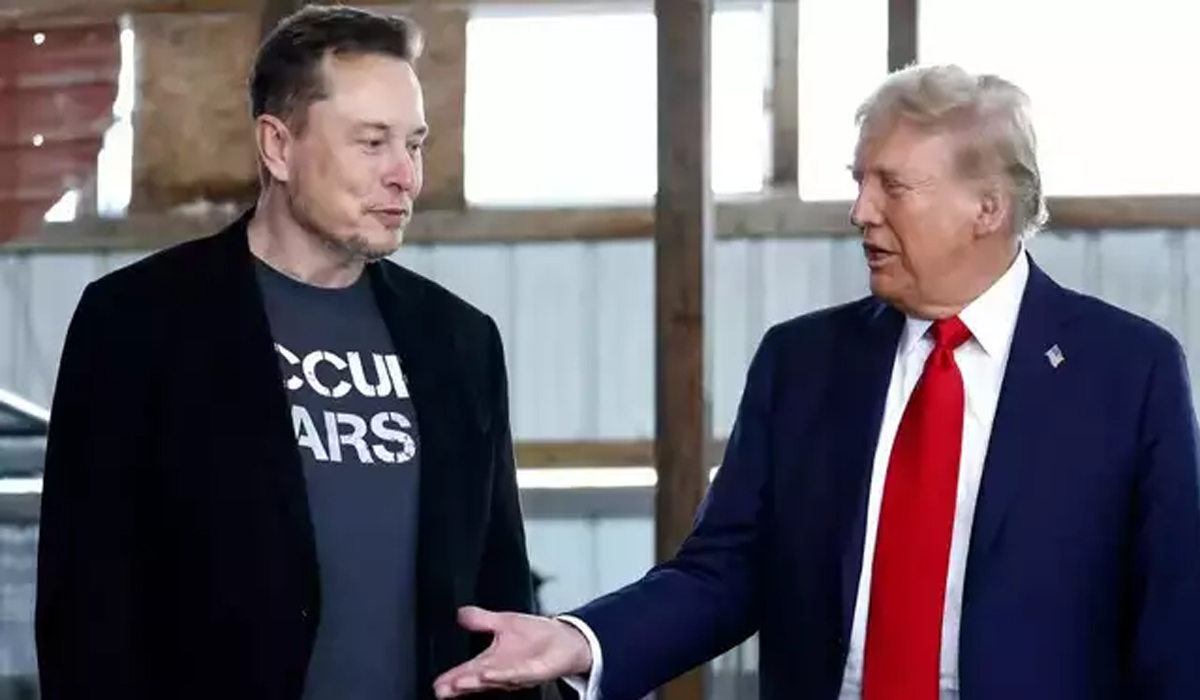
Washington: Elon Musk, Tesla’s CEO, has been publicly challenging White House trade adviser Peter Navarro’s comments on Tesla, particularly regarding tariffs. Musk criticized Navarro for labeling Tesla not as a “manufacturer” but just an “assembler” of cars since many of its components are sourced from abroad. Musk argued that Tesla builds the most American-made cars, based on a study from Cars.com that also includes Canada in its definition of “American-made.”
In addition, Musk’s brother, Kimbal Musk, called out President Trump’s tariff strategy, pointing out that it effectively serves as a permanent tax on U.S. consumers. Despite Trump’s claim that the tariffs aim to reduce the U.S.’s trade deficits, Wall Street is concerned about how the administration’s policies might evolve, especially as Trump’s advisers like Navarro and U.S. Trade Representative Jamieson Greer influence the direction of trade talks.
The stock market initially rallied, with the S&P 500 seeing gains of up to 4% after Treasury Secretary Scott Bessent mentioned that about 70 countries had approached the White House for trade discussions. Bessent also explained that countries avoiding trade escalation would be prioritized in talks. He likened the tariffs to a “melting ice cube,” suggesting that as manufacturing returns to the U.S., the revenue from tariffs would eventually diminish, being replaced by tax revenue from new industries and job creation.
However, the market’s optimism was short-lived. After Greer testified before the Senate Finance Committee, saying that tariff exemptions wouldn’t be possible in the short term, stocks lost momentum. Greer emphasized that the trade deficit, built over decades, wouldn’t be fixed overnight.
Meanwhile, bond markets continued to show unusual activity. Yields on Treasury securities rose, with the 10-year yield climbing above 4.2%, and the 2-year yield above 3.8%. The increase is linked to the unwinding of the “basis trade,” a strategy often used by hedge funds. This trade involves betting on the price difference between Treasury securities and futures contracts. Hedge funds often use heavy leverage, and with around $800 billion invested in this strategy, any market shock could create instability.
In the retail sector, Apple stores saw “panic buying” of iPhones as customers rushed to purchase devices before potential price hikes due to tariffs. Some stores across the U.S. experienced holiday-like crowds, with many customers asking if prices would soon rise.
Additionally, El Pollo Loco disclosed that it had received an unsolicited acquisition proposal from Biglari Capital Corp. Biglari, which already owns about 15% of El Pollo Loco, is interested in acquiring the rest of the company. The board is evaluating the proposal with advice from independent financial and legal experts.
In regulatory news, the U.S. Justice Department announced the dissolution of its National Cryptocurrency Enforcement Unit, signaling a shift in the Trump administration’s deregulatory stance. The DOJ emphasized that it does not see itself as a digital assets regulator.
Lastly, small-cap stocks have been hit hard by the tariff-related selloff, with the Russell 2000 entering bear market territory. Morgan Stanley predicts small-caps will continue to underperform large-caps due to their greater exposure to macroeconomic risks and declining earnings estimates. However, they also see opportunities in smaller companies with strong returns on equity (ROE) and momentum, which have performed well in the past year.
